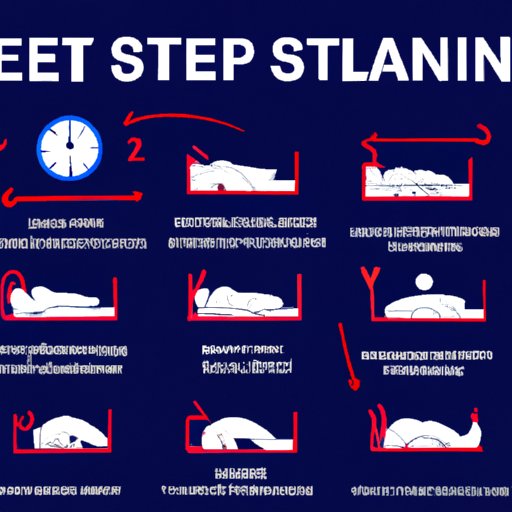Introduction
Do you have difficulty falling asleep at night? Do you often find yourself lying in bed awake, counting the minutes until you can finally drift off? If so, you’re not alone. According to the National Sleep Foundation, over one-third of Americans report having difficulty sleeping on a regular basis. Fortunately, there are ways to improve your sleep quality and help you fall asleep faster. In this article, we’ll discuss seven tips for getting better sleep and sleeping faster.

Establish a Relaxing Bedtime Routine
The first step to falling asleep faster is to establish a consistent and relaxing bedtime routine. Going to bed and waking up at the same time each day can help your body naturally adjust to a sleep schedule. Try to avoid screens or strenuous activities before bed. Instead, do something calming like reading a book, taking a warm bath, or listening to soothing music. Additionally, make sure your bedroom is comfortable by keeping it dark, quiet, and cool.

Avoid Caffeine Late in the Day
Caffeine is a stimulant that can interfere with your sleep cycle. To ensure you’re getting the best quality sleep possible, limit caffeine intake after lunch. If you’re particularly sensitive to caffeine, you may want to avoid it altogether in the afternoon and evening.
Exercise During the Day
Regular exercise can help improve your sleep quality and make it easier to fall asleep faster. According to research from the National Institutes of Health, just 30 minutes of moderate-intensity activity each day can help you achieve better sleep. This could include anything from walking to jogging to swimming. Exercise can also reduce stress levels and help you relax before bed.
Limit Naps to 30 Minutes or Less
It’s tempting to take naps during the day when you’re feeling tired, but napping too long can disrupt your nighttime sleep. To maximize the benefits of napping, keep them short – no more than 30 minutes. This will help you stay alert during the day and get better rest at night.

Try a Sleep Meditation or Guided Imagery
Certain relaxation techniques can help you drift off faster. Examples include guided imagery, progressive muscle relaxation, and mindfulness meditation. Research conducted by the American Academy of Sleep Medicine found that these techniques can help reduce insomnia symptoms and improve sleep quality. You can find guided meditations and other resources online to help you get started.
Conclusion
Getting good sleep is essential for your overall health and wellbeing. By establishing a relaxing bedtime routine, limiting caffeine intake, exercising regularly, and trying different relaxation techniques, you can help improve your sleep quality and fall asleep faster. With some practice and dedication, you can enjoy a better night’s rest every night.
(Note: Is this article not meeting your expectations? Do you have knowledge or insights to share? Unlock new opportunities and expand your reach by joining our authors team. Click Registration to join us and share your expertise with our readers.)
